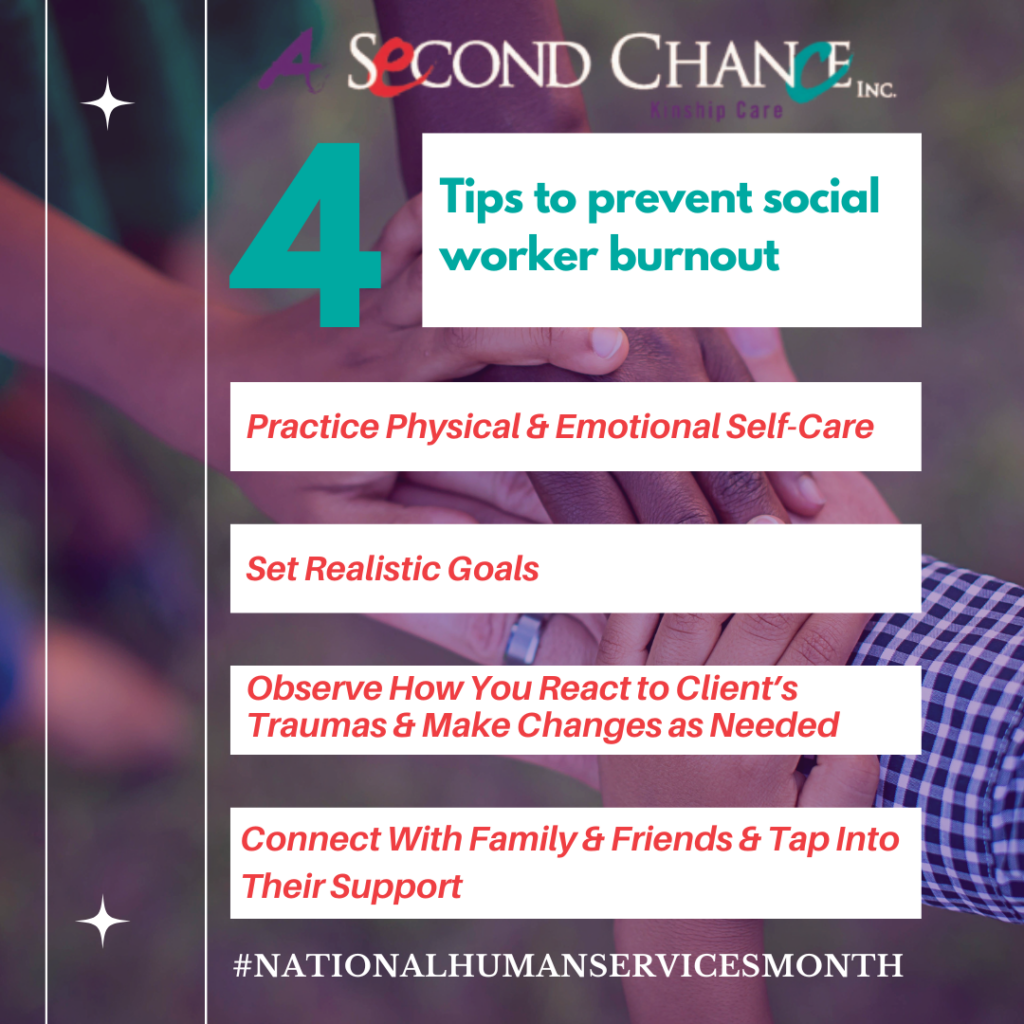Blog
Managing Burnout as a Social Worker
Social workers, like those at A Second Chance, Inc., take on an important role in society, such as helping some of the population’s most vulnerable people overcome their daily challenges.
Although social workers make a difference in people’s lives, it can sometimes feel like a thankless job. Social workers often take on high caseloads and extra responsibilities, so burnout is a real problem in the social work industry.
What is burnout in social work?
In short, burnout involves being drained after substantial and constant stress. Social work burnout symptoms include emotional fatigue and depersonalization. If left unchecked, burnout can lead to a restricted capacity to execute a job.
With this knowledge, social workers don’t need to succumb to the feelings of exhaustion associated with burnout.
How to prevent burnout in social work:
Social workers can only provide acceptable care for others if they first appropriately care for themselves. Many techniques for deterring or addressing burnout involve identifying the signs, looking out for yourself, and taking care of your needs.
If you are feeling stressed, practice self-care by reading a book or walking in the park! If you are struggling to handle an overwhelming caseload, talk to your supervisor about it and come up with an action plan in order to handle the situation.
Below ar useful tips to manage and prevent burnout for everyday practices to more consequential changes in your career.
